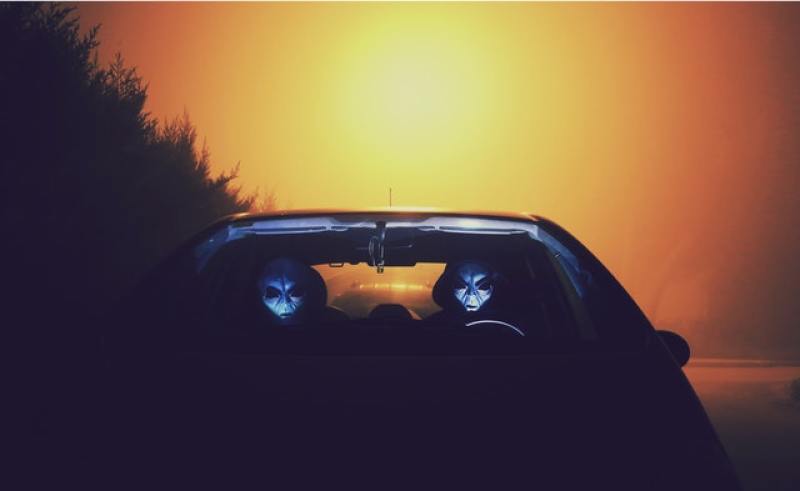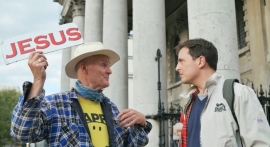
Two dozen religious experts from the New Jersey-based Center for Theological Inquiry were recently hired by NASA to provide a response in the event that life would be found to exist in Mars.
Christian News Now said the experts would ponder on the religious implications if NASA did discover extraterrestrial life on Mars. While the Christian Headlines called the endeavor as an opportunity for people to be given religious guidance if ever aliens did exist.
Former NASA Astrobiology Institute Head Carl Pilcher, as per Relevant Magazine, enlisted the 24 theologians to "consider the implications of applying the tools of late 20th (and early 21st) century science to questions that had been considered in religious traditions for hundreds or thousands of years."
Center for Theological Inquiry Director Will Storrar explained that the project aims the 24 theologians to come out with "serious scholarship being published in books and journals" on extraterrestrials, especially on the "profound wonder and mystery and implication of finding microbial life on another planet."
Of the said theologians, University of Cambridge's religious scholar Rev. Dr. Andrew Davidson that the project is "useful to have thought through the implications in advance" if ever aliens were encountered by humans. Such an encounter, Davidson said, would impose significant ramifications "for the standing and dignity of human life" since a "large number of people would turn to their religion's tradition for guidance."
Church Leaders said the project is entitled the "The Societal Implications of Astrobiology." Davidson, who is a biochemist, revealed his role in the study through the Cambridge divine faculty blog. Davidson said his main role is on Christology involving "a survey of the main topics in Christian belief-what is sometimes called 'systematic theology'-from the perspective of life elsewhere in the universe." The researched revolved around the existence of the "many incarnations' of Jesus," of the dignity of human life, and of creation.
"I am thinking about its bearing on the doctrines of creation, sin, the person and work of Jesus, redemption, revelation, eschatology, and so on," Davidson said.
Davidson would be coming out with a new book, "Astrobiology and Christian Doctrine," that details how religion would help process the discovery of extraterrestrial life.
"Nonreligious people...seem to overestimate the challenges that religious people...would experience if faced with evidence of alien life," Davidson remarked.
The Scientific American explained in a 2017 article on the belief in aliens being a "religious impulse" that the desire to the belief in religion and aliens both stem from the innate human desire to find a "deeper meaning in life." The Pew Research came out with a study last June showing that two-thirds of Americans believe that aliens do exist, mostly those belonging to the younger generation.
However, Christian apologist Ken Ham dismissed such beliefs during a discussion on unidentified flying objects reportedly spotted by military aircraft. Ham pointed to the Holy Scripture as basis for saying that UFOs are nothing but "hype."
"When you start with God's Word, you can confidently say there are no intelligent beings on other planets. You see, God formed earth to be inhabited (Isaiah 45:18)-not Mars, Venus, or some other far-flung planet," Ham said.
"Also, when Adam sinned, his sin affected all of creation (Romans 8:22). Jesus came as the last Adam to save those of Adam's race who will repent and believe. If there were intelligent aliens out there, they would suffer the effects of sin but couldn't be saved because Christ died for mankind, not for aliens (1 Peter 3:18; Hebrews 9:27-28, 10:10). So, theologically, we know that aliens can't (and don't) exist," he added.
The Societal Implications of Astrobiology project is NASA's second undertaking with the Center for Theological Inquiry for it previously granted $1.1 million study in 2014. The said study lasted until 2017 and involved researchers examining worshipers' openness and interest to scientific inquiry.




















